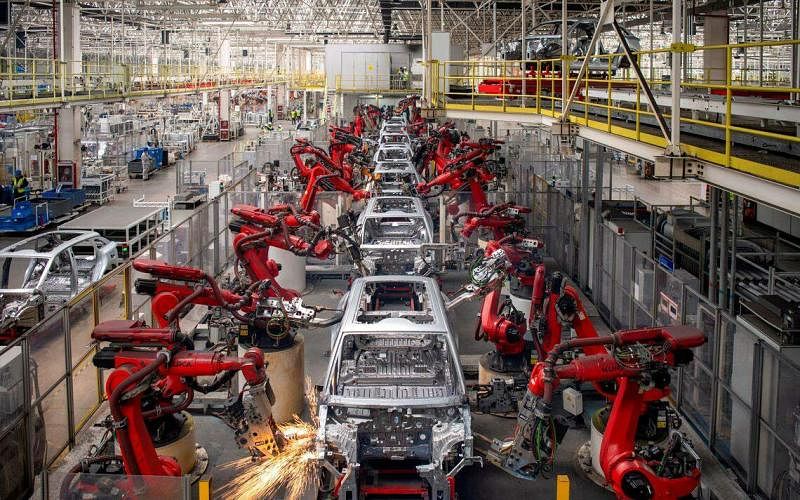Xi Jinping Pushes for Trade-In of Old Cars and Home Appliances to Boost Consumption
In a recent meeting chaired by Xi Jinping, General Secretary of the Communist Party of China, it was emphasized that accelerating product upgrading is crucial for promoting high-quality development. Xi Jinping called for encouraging the replacement of old cars and home appliances with new ones as a measure to drive growth and boost domestic consumption.
Scholars interviewed believe that this latest policy deployment by China’s top leaders aims to strengthen domestic consumption and hedge against unfavorable foreign trade factors such as restrictions on Chinese automobile imports by the United States and Europe.
Xi Jinping highlighted the importance of implementing large-scale equipment upgrades and initiating a trade-in of consumer goods to promote investment and consumption. He stressed the need to encourage trade-ins of traditional consumer goods like automobiles and home appliances and to reduce logistics costs to facilitate the real economy.
While China’s consumption has been gradually recovering, the auto sector faced challenges at the beginning of the year due to low market confidence and market saturation. Data from the China Passenger Car Market Information Joint Conference revealed a decline in sales of passenger cars and new energy vehicles in January.
To counter this trend, China’s top leaders are expected to boost auto sales through policies aimed at stimulating domestic consumption. The announcement of the trade-in policy saw a positive response from the auto-related sectors, with stocks in the auto parts and auto service sectors rising.
Fu Fangjian, an associate professor at Singapore Management University’s Lee Kong Chian School of Business, suggested that the government may utilize consumer coupons and discount subsidies to incentivize the purchase of cars and home appliances, thereby further driving domestic consumption.
Amidst a complex foreign trade situation, China’s focus on stimulating domestic demand is seen as a strategic move to offset restrictions on Chinese automobile imports by the US and Europe. As the world‘s largest electric vehicle market, fierce competition in China has led to consolidation in the industry, with many smaller manufacturers shutting down.
On the other hand, as foreign direct investment in China declined to a 30-year low, Premier Li Qiang emphasized the importance of stabilizing foreign investment at a recent State Council executive meeting.
With China’s economy facing challenges, the government’s push for product upgrading and increased domestic consumption signals a shift towards a more market-oriented approach. By incentivizing trade-ins and boosting domestic demand, China aims to spur industrial development and regain investor confidence in the market.
